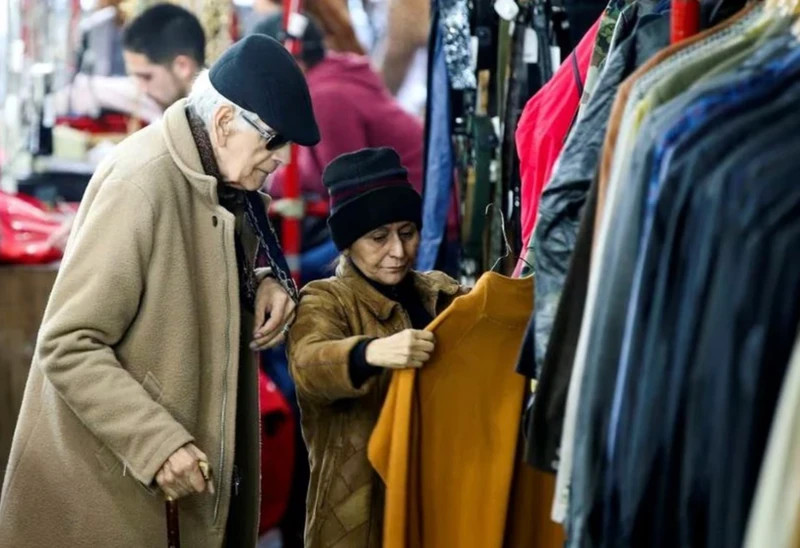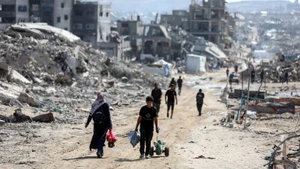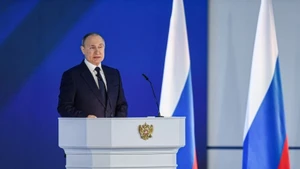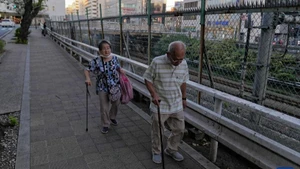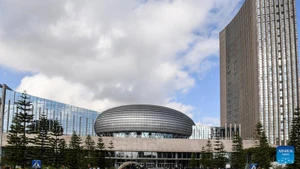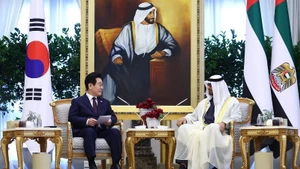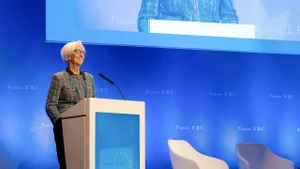Since taking office in December 2023, President Javier Milei has adjusted fiscal policy, particularly sharply cutting public spending to achieve financial balance. Immediately after their establishment, the Government of President Milei announced a 50% devaluation of the value of the local currency peso; reduced the number of ministries from 18 to 9; laid off several workers in the public sector; reduced subsidies for public transportation and medical care; reduced central budget allocation to provinces and stopped opening bids for infrastructure projects using the state budget. In the first quarter of 2024, the Argentine Government laid off 50,000 public sector employees and affirmed that it would continue to cut another 70,000 people in April.
Initial result
With sharp cuts in public spending, President Milei's Government set an ambitious goal of achieving a budget surplus equivalent to 3% of GDP in 2024. President Milei said since 2008, this is the first quarter that Argentina escaped a budget deficit, which is "a miracle". According to Milei, the current government has cut 22% of the operating costs of the state apparatus, thoroughly streamlined the public administrative apparatus by halving the number of people holding positions at state agencies, as well as dissolving many unnecessary ministries, departments and agencies.
By adjusting public spending by reducing 76% of the central budget allocated to localities and cutting up to 87% of public investment capital in public works, the Argentine Government has saved a financial amount equivalent to 5% of GDP.
By adjusting public spending by reducing 76% of the central budget allocated to localities and cutting up to 87% of public investment capital in public works, the Argentine Government has saved a financial amount equivalent to 5% of GDP. March inflation in Argentina was lower than before as the Consumer Price Index (CPI) continued to decline for the third consecutive month and increased only 11% compared to February. The CPI’s increase in March decreased significantly compared to the 13.2% recorded in February and 20.6% in January.
However, compared to the same period in 2023, inflation in Latin America's third-largest economy is still very high. Specifically, March inflation remained at 11% compared to the previous month and increased to 287.9% over the same period in 2023. This is the highest inflation increase in the world. JP Morgan Bank predicted that hyperinflation in the Argentine economy will be controlled by 2025 at 40%. Meanwhile, Morgan Stanley stated that Argentina's inflation may be only 31% by 2025 and is the most optimistic forecast. According to Morgan Stanley, the budget deficit this year is at 1.7% and will be at 0.7% next year, much lower than President Milei's expectations.
Argentine President Javier Milei's solutions related to economic reform were highly appreciated by the World Bank (WB) and the International Monetary Fund (IMF). William Maloney, chief economist in charge of Latin America and the Caribbean of the World Bank, assessed that the Argentine Government is on the right track so that the South American country can escape the stagnation situation. Buenos Aires's control of the budget deficit is estimated to contribute to curbing inflation, and controlling hyperinflation is decisive for the economy. The IMF also praised the "bold" economic policies of President Milei's government to restore economic stability and address problems that are slowing growth and investment. Supporting the policy of cutting the budget deficit, the IMF also warned that Buenos Aires needs to pay attention to vulnerable people when adjusting economic policies.
Difficulties and challenges
President Milei's "austerity" policies are causing disagreements between the central government and provincial governors because local budgets for education, health care and infrastructure construction are being cut. Layoffs combined with inflation are still double-digits, making workers’ lives difficult. The actual income of Argentines decreased. A study shows that 51.8% of the country's population, equivalent to 22.6 million people, will fall into poverty in the first quarter of 2024, an increase of 3.2 million compared to December 2023. Professor Martin Gonzalez-Rozada from Torcuato Di Tella University said the main reason for the sharp rise in the poverty rate in Argentina in the first three months of this year was high inflation. According to analysts, the decision of President Javier Milei's administration to devalue the peso by up to 50% and the uncontrolled escalation of essential goods prices have significantly reduced the purchasing power of the middle class, pushing millions of people to fall into poverty.
The government's harsh economic policies led to strikes and protests across Argentina. Most recently, the principals of 57 public universities in Argentina called on students and workers to participate in protests. Many social organisations, opposition political parties and students from many private universities also responded. This is the largest protest against the government's "austerity" policy since President Milei took office. In the capital alone, about 500,000 people participated. Secretary of the Argentine University Federation (FUA) Tomás Battaglino affirmed that the Argentine people will not give up on the public, free and high-quality education system, serving development and protecting the country's sovereignty.
The government will promote savings and reduce taxes until Argentina has a level of public spending consistent with the country’s demand for development.
President Milei
He emphasised that the large participation of lecturers and students in the protest is a strong wake-up call against the government's current austerity policies. This year, the Argentine Government has cut more than 72% of the budget for the education system, the lowest budget since 1997. Recently, the University of Buenos Aires (UBA), one of three famous state-owned universities in Latin America, has declared a budget emergency and warned that the university will only be able to continue operating for a few more months due to a lack of funding.
